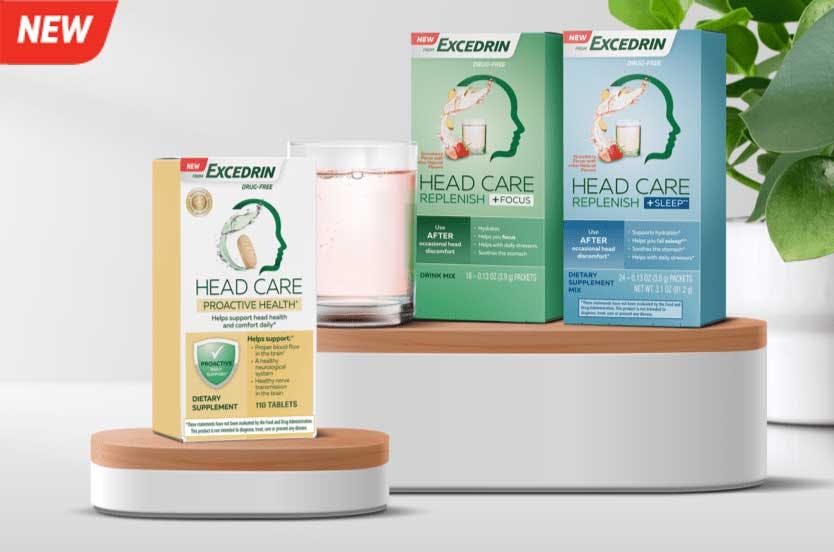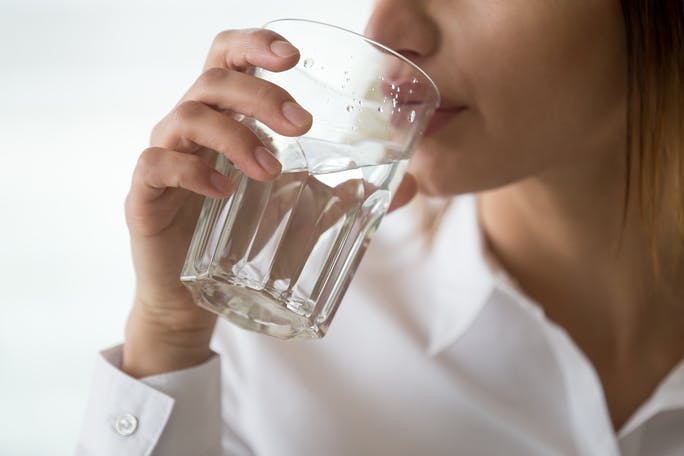Can Dehydration Cause Migraines?
If you’ve ever experienced a migraine, you likely understand how frustrating it is not to know what’s causing your pain. The causes of migraine aren’t fully understood, but genetic and environmental factors appear to play a role.5 People suffering from migraines might not be able to find the cause of their migraines, but they can learn how to better manage their migraine triggers. Migraine triggers can often be avoided, especially when people who suffer from migraines determine what triggers can bring on the painful headache for them. Understanding and learning more about these triggers may help you avoid migraines or lessen their severity.
While dehydration does not cause migraines, it can often trigger them.6 1/3 of people who suffer from migraines report dehydration to be a trigger for their headache.3 Some studies have shown that there is an association between dehydration and migraine frequency and severity.8 Luckily, dehydration is one trigger that can often be prevented by learning the warning signs and making proper hydration a priority.
What is Dehydration?
Dehydration is caused by the loss of fluid from the body.1 It happens when you lose more fluids than you are taking in and your body does not have enough fluids to continue working properly.1 Staying hydrated is crucial to maintaining your health and wellness because hydration regulates body temperature, prevents infections, and keeps organs functioning properly.5 Being properly hydrated can also improve sleep quality, cognition, and mood.2 Unlike dehydration headaches, migraines are not caused by dehydration.6 However, because dehydration can trigger migraines, proper hydration is important for people who suffer from this type of headache.
Signs of Dehydration
There are several symptoms associated with dehydration, such as headaches. Other signs of dehydration can include:4
- Increased thirst
- Fatigue or lethargy
- Dizziness
- Dark yellow urine or decreased urine output
- Sticky or dry mouth
- Loss of skin elasticity
- Irritability
Recognizing these signs can help you recognize when you need to re-hydrate, but when it comes to dehydration, prevention is key.
Preventing Dehydration Migraines
One of the easiest ways to prevent dehydration is by making hydration an important part of your day. Experts typically recommend 11 cups of water for adult women and 16 cups of water for adult men.2 This recommendation includes water intake from food and other beverages.5 This means you can also make sure you’re staying hydrated by paying attention to what kinds of foods you’re eating. Eat hydrating foods such as fresh raw vegetables like cucumbers, spinach, lettuce, zucchini, bell peppers, carrots, and celery or fresh fruit without high sugar content.6 Eating these foods cannot replace your daily water consumption, but they can be a tasty supplement in staying hydrated.
Drinking plenty of fresh water is of course one of the most important ways to stay hydrated, but especially before and during exercise and during the hottest part of the day in the summer. Carrying a reusable water bottle with you is an easy way to make sure you’re staying hydrated throughout the day. Avoiding excessive consumption of diuretics, beverages that increase urine production, such as coffee, tea, soda, and alcohol, and sugary drinks like fruit juice is another way to prevent dehydration.
In some situations, you might need to hydrate more than normal to prevent dehydration and avoid triggering a migraine. Vomiting, diarrhea, and illnesses like influenza or bronchitis can increase your risk of dehydration.6 Children and elderly adults are also more at risk of dehydration and should pay closer attention to their fluid intake.1
When thinking about hydration, you should consider your activities and environmental factors. It’s important to hydrate before, during, and after strenuous exercise.5 During hot or humid weather, drinking more water than normal can help lower your body temperature and replace the water you lose through sweating.5
Treating Dehydration Migraines
While dehydration can sometimes require medical care, treating mild dehydration can be as simple as rehydrating once you recognize the signs. If you find yourself struggling with dehydration regularly, talk to your doctor.
Avoiding dehydration won’t cure migraines but staying hydrated might decrease the frequency of these headaches.6 Many people who experience migraines find over-the-counter medication like Excedrin Migraine useful for managing their mild to moderate migraine pain.7
We hope this article has helped you understand the impact of dehydration on migraines and learn more about symptoms and prevention. To read more about migraine causes and treatment, explore the Excedrin Migraine Hub. Check out our similar articles about surprising migraine triggers and how to avoid migraine trigger foods while dining out.
Source Citations:
- Dehydration.
https://medlineplus.gov/dehydration.html.
Accessed on 4/22/2021. Referenced text indicated in source PDF. - The importance of hydration.
https://www.hsph.harvard.edu/news/hsph-in-the-news/the-importance-of-hydration/.
Accessed on 4/22/2021. Referenced text indicated in source PDF. - Top 10 Migraine Triggers and How to Deal with Them.
https://americanmigrainefoundation.org/resource-library/top-10-migraine-triggers/.
Accessed on 4/22/2021. Referenced text indicated in source PDF. - Headaches and Dehydration.
https://headaches.org/2016/07/07/headaches-and-dehydration/.
Accessed on 4/22/2021. Referenced text indicated in source PDF. - Water: How much should you drink every day?
https://www.mayoclinic.org/healthy-lifestyle/nutrition-and-healthy-eating/indepth/water/art20044256.
Accessed on 4/22/2021. Referenced text indicated in source PDF. - Hydration and migraine.
https://migrainecanada.org/posts/the-migraine-tree/branches/self-care-lifestyle/hydration-and-migraine/.
Accessed on 4/22/2021. Referenced text indicated in source PDF. - Migraine with Aura.
https://www.mayoclinic.org/diseases-conditions/migraine-with-aura/diagnosis-treatment/drc-20352077
Accessed on 4/22/2021. Referenced text indicated in source PDF. - Association of drinking water and migraine headache severity.
https://www.sciencedirect.com/science/article/pii/S0967586820309413.
Accessed on 4/22/2021. Referenced text indicated in source PDF.









